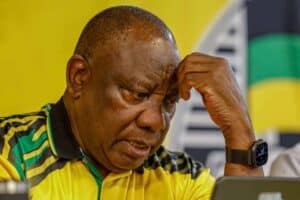But despite the apparent progress in President Ramaphosa’s so-called New Dawn, some believe it is too early to pop the champagne.

Public Enterprises Minister Pravin Gordhan gave several major state-owned enterprises (SOEs) a major shakeup yesterday, with the appointment of several new boards, as well as the permanent appointment of an Eskom CEO.
Gordhan announced permanent appointments and replacements in top offices at several of the country’s SOEs yesterday.
Most notably, corruption buster Popo Molefe, who had been acting in the position, was appointed as chairperson of the board at Transnet, while state-owned arms manufacturer Denel has a new board, headed by former Airports Company of South Africa chief executive Monhla Hlahla.

Popo Molefe, who had been acting, was appointed as chairperson of the board at Transnet. Picture: Gallo Images
He also announced changes at airline South African Express, reflecting on the management chaos at the institution over the past year.
“South African Express has lost a number of its executive managers (several of whom were suspended due to allegations of corruption against them).
“The chief executive officer (CEO) and chief financial officer (CFO) are among the vacant positions. The department of public enterprises had previously seconded officials from the department to assist in filling the gaps, including Matsietsi Mokholo, who is currently acting as the CEO,” he said in a statement.

Tryphosa Ramano, current chief financial officer of PPC, heads up SA Express. Picture: Gallo Images
The new board at the embattled airline will be headed by chartered accountant and current chief financial officer of PPC Tryphosa Ramano.
The portfolio committee on public enterprises welcomed the new appointments, noting the achievements of those who had already been acting in those positions.
Commenting on the appointment of Phakamani Hadebe as CEO of Eskom, committee chair Lungi Mnganga-Gcabashe said she noted the “good work” done by the executive since he was appointed as interim CEO in January.

Eskom acting CEO Phakamani Hadebe’s appointment has now been confirmed. Picture: Michel Bega
“He brings the experience of the Land Bank, National Treasury and Absa to the position. We believe he has the right skill set to stabilise Eskom – something the country needs desperately,” she said. “We have confidence the new board members, who have been appointed and confirmed, will bring about changes in governance and restore financial stability in the respective SOEs.”
Despite the apparent progress in President Cyril Ramaphosa’s so-called New Dawn, some believe it is too early to pop the champagne.

Monhla Hlahla, former Airports Company of South Africa boss now heads up Denel. Picture: Gallo Images
Political analyst Ralph Mathekga and economist Dawie Klopper both agreed the announcements would boost confidence in the institutions, but warned it would not be long-lasting.
“I don’t think anyone has a mandate to be doing that. Ramaphosa is a caretaker president and it is inappropriate for a caretaker president to be making such changes,” said Mathekga.
“I understand the anti-corruption movement, but that doesn’t mean people can overextend their mandate. These things need better consultation and that is not something you can do whimsically.”
Klopper was more optimistic, predicting that recent moves made by the Ramaphosa regime could see significant economic growth next year.
“Ramaphosa said we need to strengthen leadership of our SOEs and we must fight corruption. He has a clear vision for SA, starting with strong economic growth. These steps will support confidence building,” he said.
But the land question was paramount to deciding whether the economy responded in earnest.
“As soon as we can solve the land debate these steps will be building blocks for staving off any downgrades and a significant economic recovery to 2.5% economic growth in 2019.”
ALSO READ: ANC admits land reform failure, recommends security of tenure
For more news your way, follow The Citizen on Facebook and Twitter.






